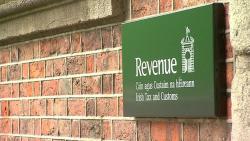
We have become so used to hearing about Charity Trustees who have gone bad and lost the run of themselves but, in this case, depending on one’s viewpoint the only ones losing the run of themselves is either the Charities Regulator or the Revenue Commissioners or both.
Paul Murphy of RTÉ Investigates issued a fascinating update on 21.02.2020 entitled “Charities Regulator excoriated after its Trustee Nominees sued by Revenue”. When reading this article you must suspend any thoughts about “sense” “logic” “appreciation” with “weird” “illogical” and “what on earth”.
In brief, the Kerry based Animal Heaven Animal Rescue (AHAR) incurred substantial tax liabilities which ultimately led to the closure of the Charity.
o January 2017 – RTÉ Investigates exposed misleading fundraising practices, unreceipted cash expenditure and a lack of financial controls.
o March 2019 – the Charity was wound up following an audit which had commenced over 18 months before the Charities Regulator nominated four Trustees.
o April 2019 – the Revenue initiated High Court proceedings against the Trustees nominated by the Charities Regulator.
AHAR is now wound up but, had tax liabilities of €203,000 of which €140,000 has been paid with a commitment to repay the balance of €60,000 in October 2020. Given the tax liabilities are being repaid, and (based on RTÉ Investigates reports) the Revenue have stated its intention to drop these proceedings if the outstanding tax liability is discharged in full why is the Revenue taking proceedings against the current Trustees?
Concerns over the level of “poor governance” at the Charity prompted the Charities Regulator to start nominating Trustees in order to “Implement proper governance and controls of the charity”
The Trustees (nominated by the Charities Regulator) did not receive any remuneration or expenses for their work. They are however receiving legal bills as they have to defend themselves against prosecution by the Revenue which must be costing each of them somewhere between €12k to €15k each.
The Charities Regulator expressed “sympathy” for the Trustees nominated by his office to help sort out CRA issues with the Charity.
One thing for sure the very people who were put in to help rescue the situation were the ones who are being been hammered. Why would anyone want to be involved with a Charity at any level based on this type of scenario where people were doing the right thing for the right reasons and still lose!
More Detail...








